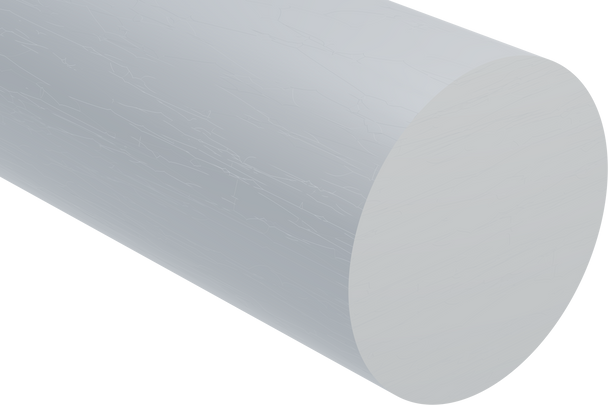Description
Acetal Rod Description
Acetal, also known as polyoxymethylene (POM) is a high strength, low friction engineering plastic that has excellent wear properties in both wet and dry environments. Acetal is chemically resistant to hydrocarbons, solvents, and neutral chemicals. Easy to machine, acetal makes an outstanding choice for applications that require complex, tight tolerances.
Acetal is an easy-to-machine, general purpose engineering plastic that has excellent dimensional stability. It is rigid, strong and has a low coefficient of friction against metals, other acetals, and plastics. Its superior creep resistance makes acetal a good choice when dimensional stability is needed.
Acetal resins are engineering thermoplastics based on formaldehyde polymerization technology. Acetal resins have high tensile strength, stiffness, resilience, fatigue endurance, and a low coefficient of friction against metals, acetals, and other plastics.
Acetal copolymers retain much of their toughness through a broad temperature range and are among the most creep resistant of the crystalline thermoplastics. A low moisture absorption characteristic permits molded parts to serve reliably in environments involving humidity variations.
Acetal rods are a tough machinable, thermoplastic with a high modulus of elasticity, high strength, good rigidity, dimensional stability, and resistances to moistures, chemicals and solvents. It has desirable toughness properties, performing well at extreme temperatures and under fatigue endurance. A low coefficient of friction (COF) alongside excellent wear properties, especially in wet or moist environments, makes acetal rod one of the most widely used engineering thermoplastics on the market today. Due to rigidity, resilience, toughness and strength, acetal rod does not become brittle even with long-term exposure to unfavorable conditions including extremely high temperatures.
Applications Include:
- Bearings and bushings
- Pump and valve parts
- Manifolds
- Gears
- Jigs and fixtures
- Food processing and other packacking machinery parts
- Wear pads
- Electrical components
Maintenance:
Usually POM can be cleaned easily with just a soft cloth and warm, soapy water - without the use of any chemicals. Rinse with distilled water after cleaning.

